July

The Azerbaijani Police Day
On May 28, 1918, the Ministry of Internal Affairs was established within the national government of the Azerbaijan Democratic Republic, which declared its independence. On June 24, 1918, the government of the Azerbaijan Democratic Republic pronounced a Decree No. 178, paragraph 42-a, "On the employees of government institutions who left their positions". For the practical implementation of that decision, the government adopted a special resolution on the formation of an independent police force in Ganja province, providing for and confirming the new staff and salary increase on July 2, 1918, based on the report of the Minister of Internal Affairs, B. Javanshir.
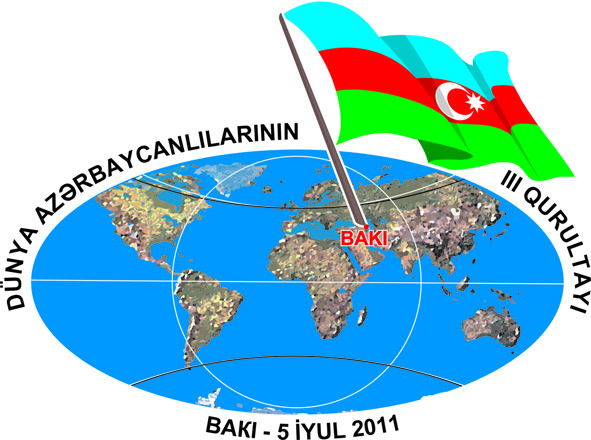
III Congress of World Azerbaijanis
Since regaining its independence, Azerbaijan has made remarkable achievements in nation-state building, consolidated its political, legal, social and economic foundations, and emerged as an undisputed regional leader in terms of economic power, democratic development and strengthened its position on the international arena. Such achievements have strengthened national unity within the country, enhanced solidarity among the Azerbaijanis of the world, encouraged our compatriots living in various states, and created grounds for sticking together for the sake of common national interests of Azerbaijan.
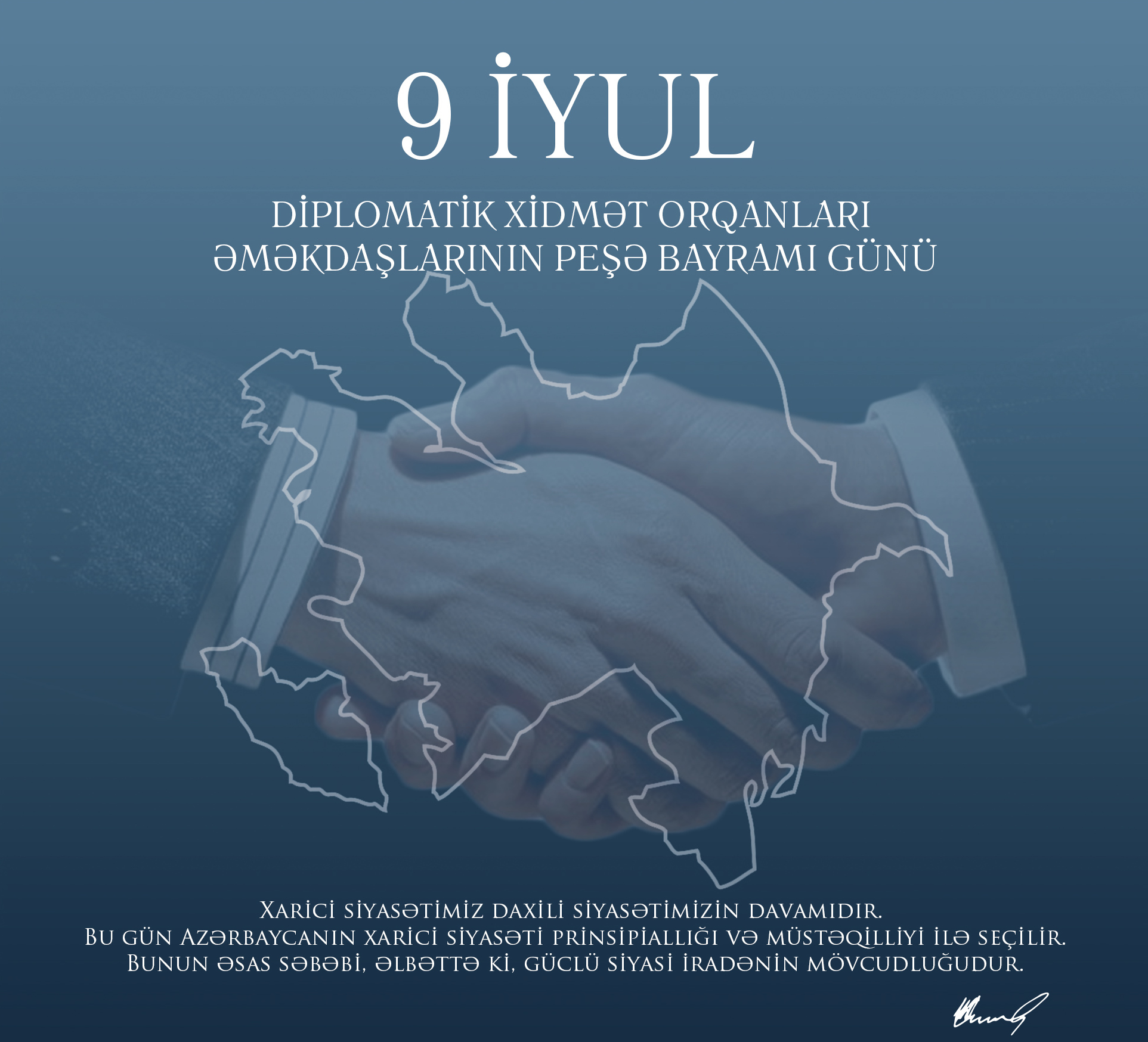
Professional holiday of diplomatic service employees of the Republic of Azerbaijan
Several proposals were considered to determine the day of diplomacy - one of them is the day of the first agreement signed by the ADR with a foreign state, the agreement was concluded with Ottoman Turkey. Another day is the day of the actual recognition of the independence of Azerbaijan by the Entente countries at the Paris Peace Conference. In the end, it was decided that the first official document found in the archives relating to the Ministry of Foreign Affairs of the ADR was a temporary instruction for the Secretariat of the Ministry of Foreign Affairs of the ADR dated July 9, 1919, therefore it was decided that this date should lie as the basis of Diplomacy Day.
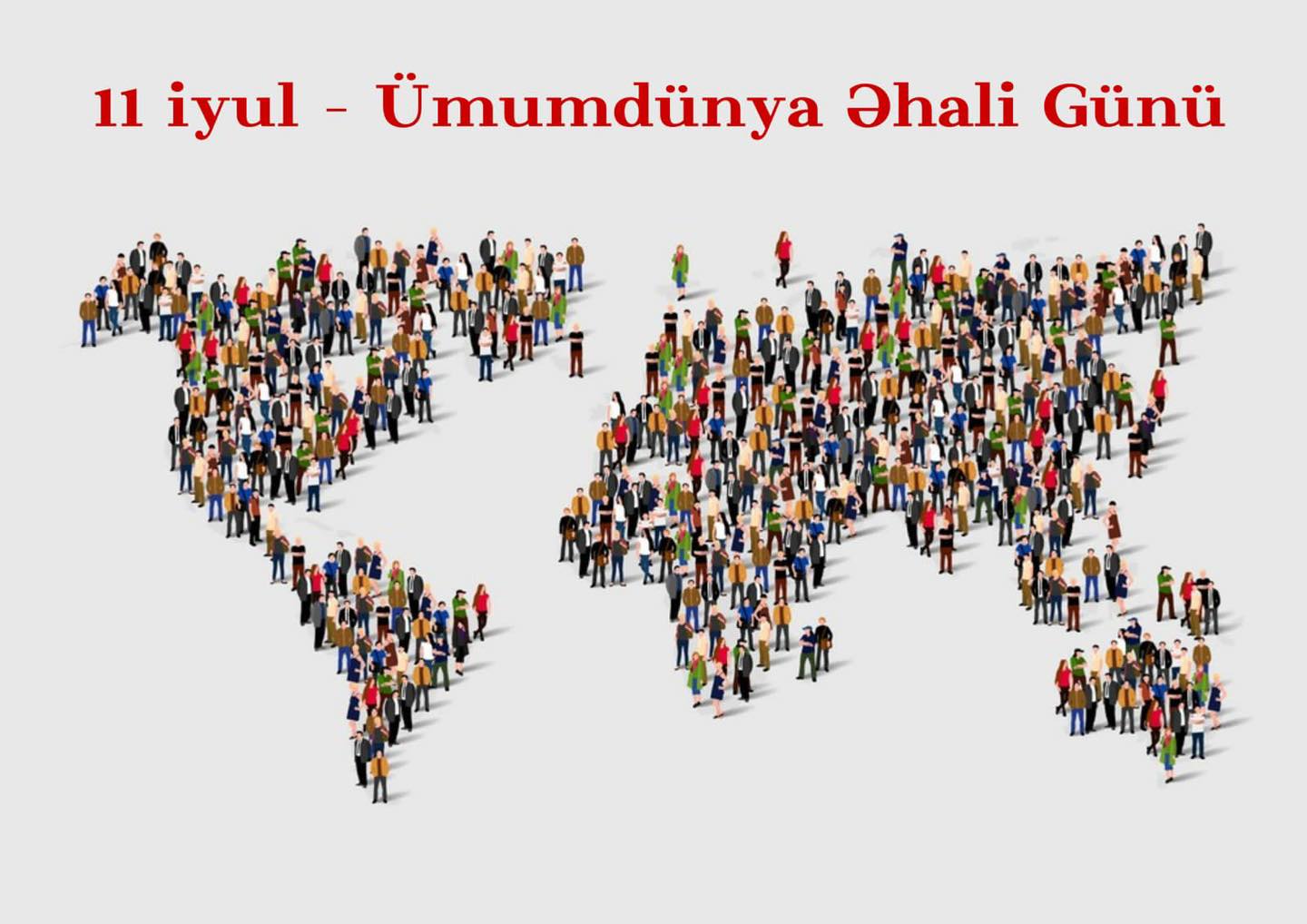
World Population Day
World Population Day was established on July 11, 1989 by the United Nations Population Fund on - the largest international organization providing assistance in solving population problems. This day was first celebrated in 1990 in more than 90 countries around the world. The purpose of the Population Fund is to raise awareness of various issues related to the world's population, such as human rights, women's health, the importance of family planning, gender equality, the Fund promotes a better understanding of population problems, develops population policy aimed at supporting efforts for sustainable development. World Population Day has been widely celebrated in Azerbaijan since 2005.
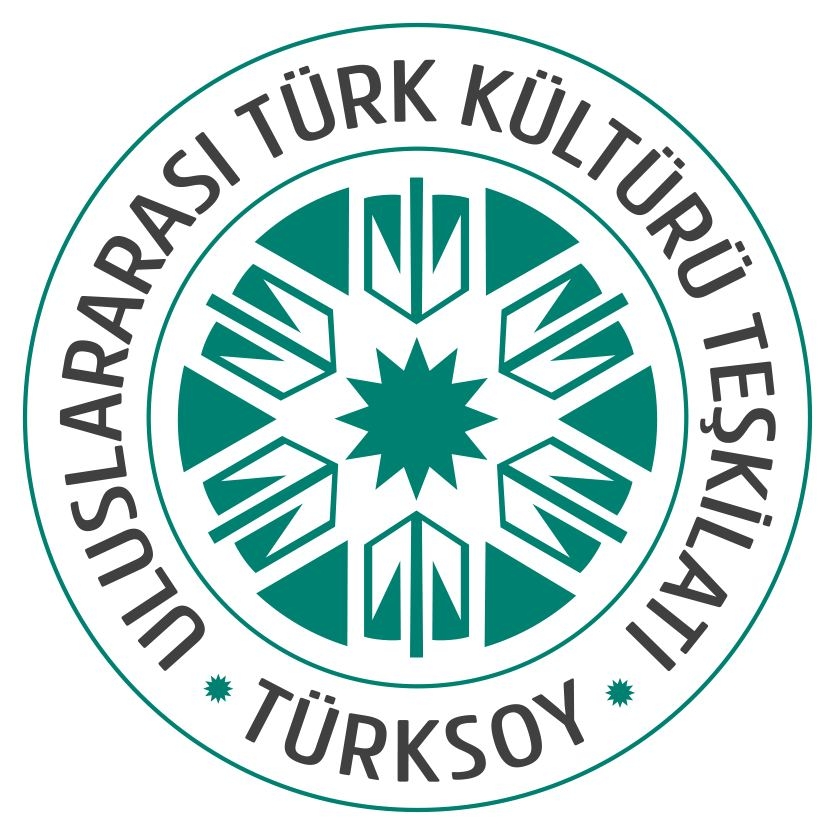
TURKSOY foundation day
The International Organization of Turkic Culture or TURKSOY is an international cultural organization of countries with Turkic populations, speaking languages belonging to the Turkic language family. TURKSOY which carries out academic activities exploring the common history, language, literature, culture and art of Turkic peoples also declares commemorative years and organizes various events within this framework. Throughout the year, TURKSOY publishes many works written in various Turkic dialects and languages by illustrious personalities of the Turkic World to transmit their cultural heritage to future generations.

Opening of the Baku-Tbilisi-Ceyhan Main Export Pipeline named after Heydar Aliyev
To turn an independent Azerbaijan into a modern, powerful state with sustainable economic development, national leader Heydar Aliyev determined the oil strategy, which would lie at the heart of the fundamental transformation of the future political and economic reforms. This strategy ensured the involvement of foreign investors in the development of Azerbaijan’s oil fields, diversification of routes of transportation of crude oil, effective management of oil revenues and Azerbaijan’s entry into a new stage of development.
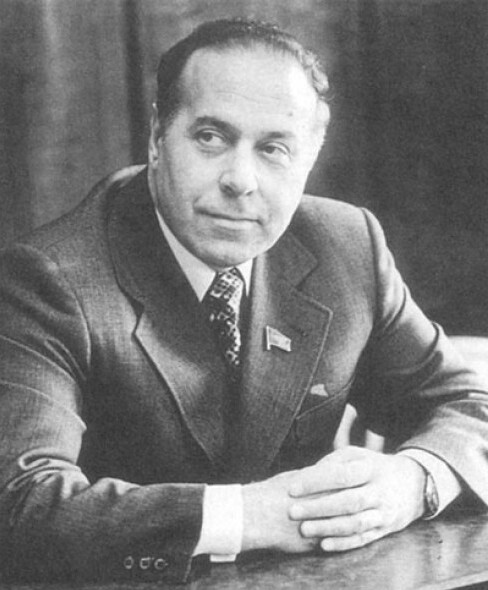
Heydar Aliyev elected as the first secretary of the Central Committee of the Communist Party of Azerbaijan
Having been thoroughly familiar with all the peculiarities of the Soviet system, Heydar Aliyev began to take important steps towards the elimination of the socio-economic backwardness of Azerbaijan. Until the late 1960s, despite certain progression in the development of the oil industry in our republic, there were also shortcomings in other areas of the economy. Azerbaijan remained the main republic of the Soviet Union producing hydrocarbon raw materials. Although oil and related fields attracted a large part of the total amount of capital investment in the national economy of our republic, the industrial and social infrastructure was poorly developed.
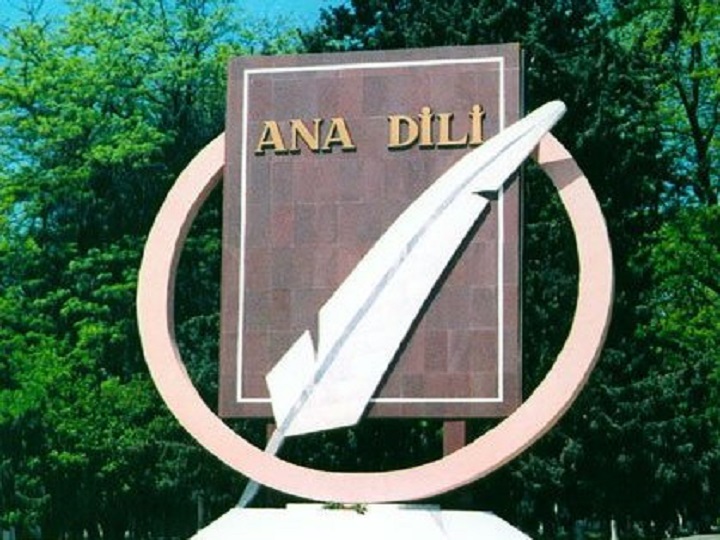
Decree of the Central Executive Committee of Azerbaijan and the Council of People
The language policy in Azerbaijan begins with the establishment of the Azerbaijan Democratic Republic. Until that period (either in the 19th century or especially in the early 20th century), prominent Azerbaijani intellectuals advanced certain opinions and suggestions about the native language, as well as the language processes taking place in Azerbaijan. But, only a month after the formation of the Azerbaijan Democratic Republic, on June 27, 1918, the Azerbaijani (Turkish) language was officially declared the state language. This was the result of the direct influence of the national ideology that developed at the end of the 19th century and the beginning of the 20th century.
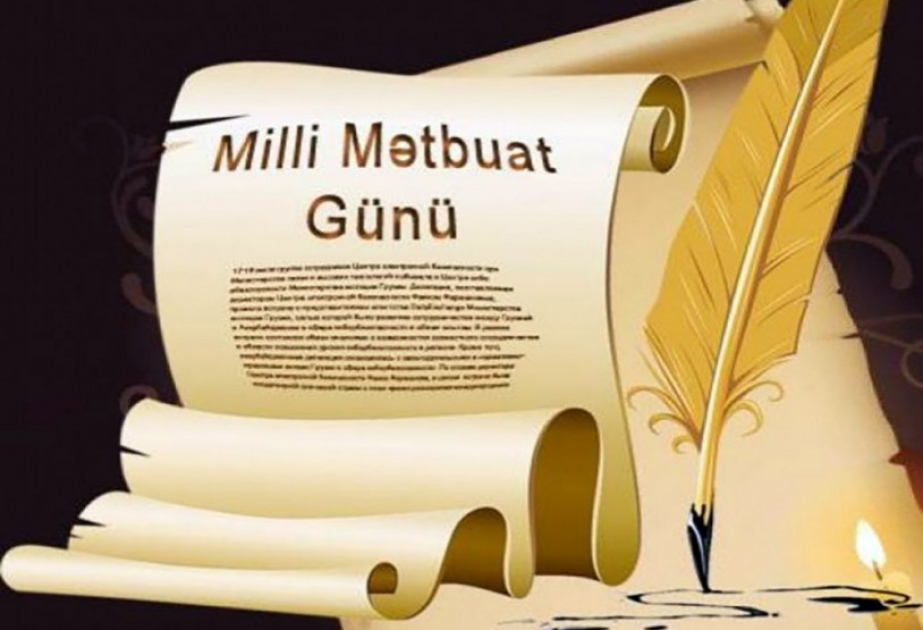
National Press Day
July 22, the first day of publishing the "Akinchi" newspaper, founded by Hasan Bey Zardabi in1875, has been marked as the National Press Day in Azerbaijan. The formation of the national press, which is one of the most important events in the public life of Azerbaijan, falls on the middle of the 19th century. The appearance of the press was a completely new political, cultural and scientific means of interaction for Azerbaijan and the entire Eastern world, and was closely connected with the important socio-political, economic and cultural processes taking place in the country, including the formation of the educational movement, secular theater and the school of the new type.
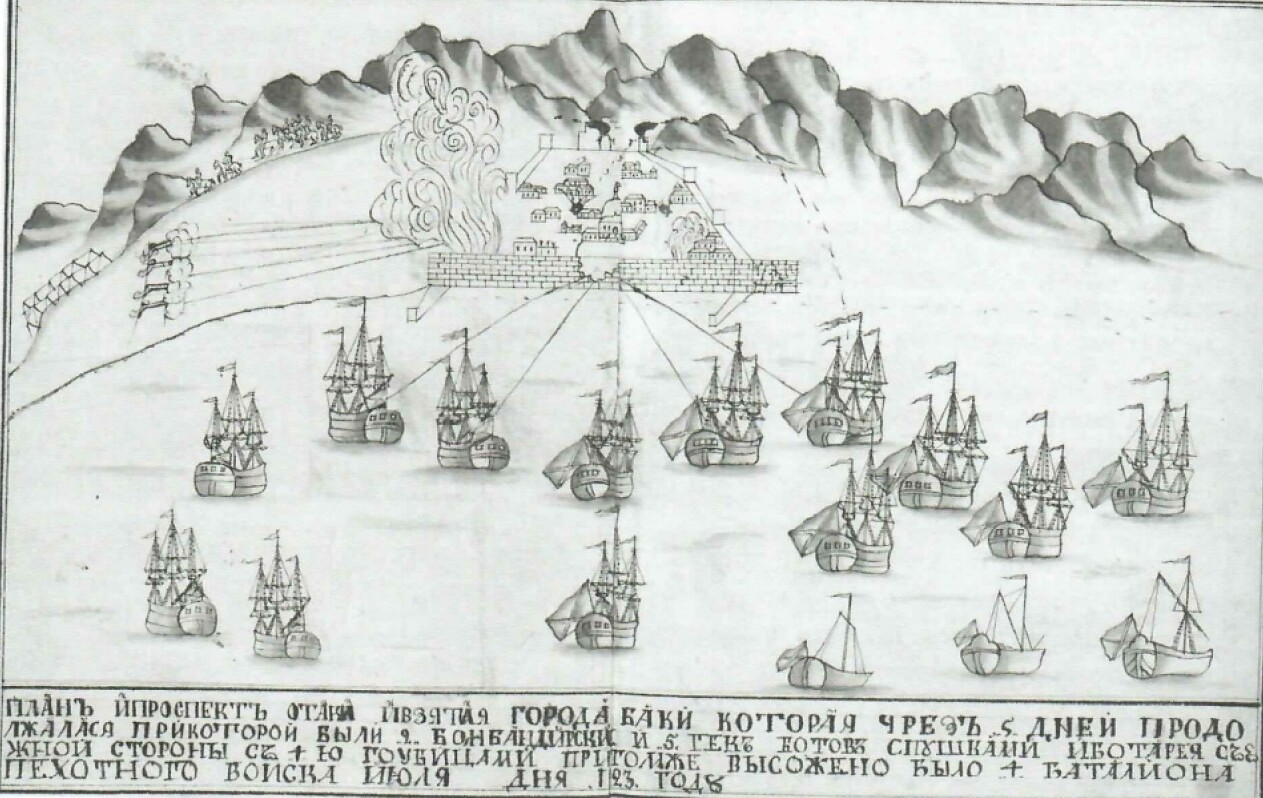
Occupation of Azerbaijan
The South Caucasus, especially Azerbaijan, has always been in the spotlight because of its rich natural resources, raw material resources, as well as its important strategic geographical position. In addition to its economic importance, Azerbaijan, occupying an important position in the Caucasus, was of great strategic interest by playing the role of a bridge connecting Europe and Asia. Extremely important military-strategic and trade routes passed through the territory of Azerbaijan. There were also seaports here, which were significant for Russia's access to eastern countries.

Creation of the institution of the Commissioner for Human Rights (Ombudsman) of the Republic of Azerbaijan
The ombudsman plays a crucial role in maintaining the rule of law in contemporary society. Today, the individual responsible for protecting human rights is commonly referred to as the Ombudsman, although they may operate under different names in various countries. "Ombudsman" comes from the Swedish word "ombud” or “umbud." Swedes and other Scandinavians interpreted the term "ombudsman" to mean "trusted" or "representative person". In the past, ombudsmen were individuals appointed by the monarchy to oversee the actions of officials and judges on behalf of the supreme authority during the absolute monarchy.

Creation of the State Committee on Work with Diaspora
After Azerbaijan gained independence the diaspora building became one of the priorities of the state policy of the Republic of Azerbaijan. The purpose of this policy, laid down by the national leader Heydar Aliyev, is to develop relations between the Azerbaijanis of the world and their historical Motherland, preserve the national identity of our compatriots, use the potential of the diaspora towards more reliable protection of our national interests, to expand inter-diaspora ties, to protect our cultural and political rights.

Launch of the first electrified railway in the territory of the former USSR (Baku-Sabunchi-Surakhani)
The building and growth of Azerbaijan's first railway were closely tied to oil transportation. The presence of oil in Absheron has been known since ancient times. Baku oil was extracted unorganized for a long period and used mainly for lighting and medicinal purposes in Azerbaijan, Middle and Central Asian countries, Russia, and India where it was exported. The first drilling well in 1871 and subsequent advancements in drilling technology led to a significant increase in oil production, particularly after the abolition of the purchase system in the early 1870s. The need to enhance oil transportation became critical amidst a surge in oil production.

Beginning of publication of the magazine "Kirpi"
The satirical magazine "Kirpi" was published in Azerbaijan in 1952, catering to the needs and realities of the era. It emerged at a crucial time when there was a demand for a fresh perspective following the legacy of "Molla Nasreddin", offering sharp criticism of societal flaws and shortcomings. True to its readers' expectations, the magazine fearlessly tackled the prevailing challenges of the time. "Kirpi" was established as the initial and exclusive government-approved satirical publication. Until the 1990s, every edition of this popular magazine was printed in 400,000 copies. The magazine "Kirpi" was fiercely fighting against bureaucracy and bribery.

Results of World War II: Potsdam (Berlin) Conference
Following Germany's surrender, it was decided to convene a conference in Berlin with the United States, England, and the USSR to address and find solutions for peaceful resolution in Europe. The conference held in Potsdam near Berlin, with leaders from the USSR, the USA, and England, was commonly known as the Potsdam Conference or "Terminal". The conference occurred from July 17 to August 2, 1945, with Stalin, Churchill, and Truman leading the discussions. Churchill was later replaced by C. Attlee, the Labor Party leader who had recently won the elections. The conference focused on post-war Europe and planning peace treaties with former enemy states.

International Chess Day
The game of chess is considered one of the oldest and at the same time one of the most complex strategic board games in the history of mankind. Chess is a creative product of the human intellect, which today is highly valued not only as a game but also as an interesting area of world culture. The International Chess Federation (FIDE) was founded on July 20, 1924, during the Summer Olympic Games. In 1966, UNESCO decided to celebrate July 20 annually as International Chess Day. FIDE is an international chess federation based in Paris. When the federation was created, it included only 14 countries, but since then it has been constantly expanding.

Creation of the International Monetary Fund
The economic crises of 1929-1933 had a disruptive impact on the global economy. Numerous banks collapsed, savings were lost, agricultural prices plummeted, land values dropped, factories closed, and unemployment soared. Furthermore, the international financial system and currency exchanges were thrown into disarray. The loss of faith in paper money led to a surge in demand for gold, causing financial institutions to accumulate more gold reserves. As a result, some countries, most notably Great Britain, abandoned the gold standard where each currency unit was tied to a specific amount of gold.

Outstanding architect of Azerbaijan Ajami Nakhchivani
Ajami ibn Abubakr Nakhchivani is a renowned architect from Azerbaijan who established the Nakhchivan School of Architecture. He revolutionized medieval Azerbaijani architecture with his artistic vision, introducing delicacy and dynamism to the Seljuk period's previously heavy and stern style. His impact extended beyond Azerbaijan to influence Middle Eastern architecture. Recognized for his genius, he was honored with the title of "Sheikhul-muhandis" (chief of engineers) by esteemed figures in the East. Ajami's creativity was intertwined with Nakhchivan, the bustling capital of Azerbaijan's powerful Atabay state during the 12th century.

Outstanding Azerbaijani geologist Farman Salmanov
Farman Salmanov was born on July 28, 1928, in the village of Morul in the Shamkhor region of the Republic of Azerbaijan. After graduating from high school, he entered the Azerbaijan Industrial Institute at the geological exploration faculty. In 1954, he graduated from this institute with higher education. After graduating from the institute, F. Salmanov was sent to Baku, but he decided to write a letter to the Minister of Oil Industry N.K. Baibakov with a request to send him to work in Siberia. They responded positively to this letter and the young oil worker’s dream came true. In 1955-1957, he worked as the head of the Plotnikovskaya oil exploration expedition in the Kemerovo region.

World Day Against Trafficking in Persons
The UN General Assembly's resolution adopted on December 18, 2013, established July 30 as the annual World Day Against Trafficking in Persons. One of the key actions taken by many developed countries worldwide is combating human trafficking. The threat of human trafficking in today's world is seen through its diverse manifestations. Some of the contributing factors to human trafficking include limitations on job opportunities, education levels of victims, lack of social protection, poverty, discrimination in the job market, and gender inequality.